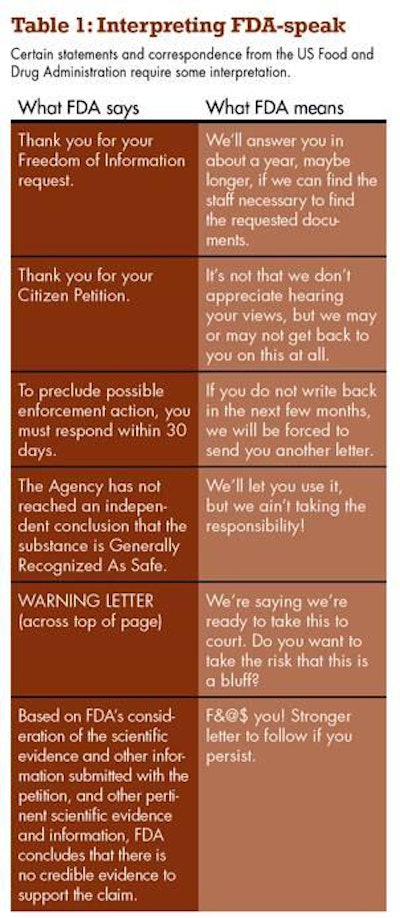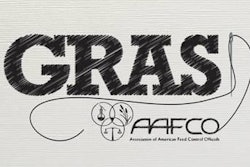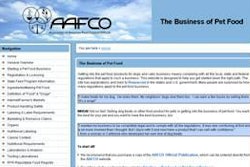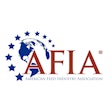
While many petfood companies have been preoccupied with concern about the ramifications of the Food and Drug Administration Amendments Act and the Food Safety Modernization Act on their businesses, another piece of legislation appears to have gone largely unnoticed.
Briefly put, the new law says that whereas the lexicon utilized in extra-office correspondence and other communications as authored by employees (be they civil servants or contractors) and others affiliated with the Executive Branch are perceived as not fully effective in transmittal of intended information to the non-governmental populace, pursuant to HR 946 all letters, publications, documents and other mailings (but not regulations per se), irrespective of medium or format, shall heretofore be constructed so as to use verbiage most likely to convey the full and appropriate message to a recipient of assumed average education and intellect, to be implemented and in force no later than the 13th day of October, in the year 2011.
In other words, the US federal government is now required to write in plain English!
The stated purpose of the Plain Writing Act of 2010 is “to improve the effectiveness and accountability of federal agencies to the public” (see “Useful links”). I’m not sure, but I think I’ve seen similar verbiage in the texts of legislation such as the Paperwork Reduction Act of 1980, the Deficit Reduction Act of 1984 and the Internal Revenue Service Restructuring and Reform Act of 1998.
As of the time of this writing, I do not see any indication of impending change to the Food and Drug Administration website. However, the Department of Health and Human Services (of which the FDA is a part) appears to be gearing up to comply with the new requirements.
As evidenced by the guidance provided to agencies in implementing the act, writing plainly does not appear to be an intuitive process. Employees are being instructed to “write as you talk,” which includes writing short sentences, omitting unnecessary words, using the simplest form of the verb, minimizing abbreviations and using contractions where appropriate. The government is now “we” or “us,” the recipient “you."
The guidance also advises writers to avoid jargon, which it sees as “unnecessarily complicated, technical language used to impress, rather than to inform, your audience.” I’m not sure if I wholly agree. In dealing with regulatory issues, as with other specific fields, use of some jargon is much more efficient, if not necessary.
For example, “enforcement discretion” succinctly iterates a specific concept. Alternatively, instead of “we will use enforcement discretion,” the FDA would have to say, “While the use of this substance technically does not wholly meet the provisions of the Federal Food, Drug and Cosmetic Act, based on our internal review of pertinent safety data we have concluded that it poses a minimal risk to animal/human health when used as intended, and as such we do not anticipate that we will initiate or recommend enforcement action at this time, on the conditions that labeling conforms to our requirements to provide for safe use, use of the substance does not extend beyond the agreed upon purpose or level of inclusion and no other information is received that would have us question our original determination of safety.” Which is easier to say?
On the other hand, I have seen at least one non-governmental website interpret the term “enforcement discretion” as meaning, “Petfood companies have a license to lie!” Thus, maybe some clarification might not be a bad idea.
Much of my business consists of explaining to clients what a regulator means by certain statements in correspondence (see Table 1). I laud any effort to make communications with the FDA more understandable, though I do not fear this new legislation will render my “interpretation” services wholly obsolete. The act does not apply to the writing of regulations, so do not expect much change in style from that respect. Plus, the act only affects the FDA, not state feed control official offices, so I still should have lots of work!


















